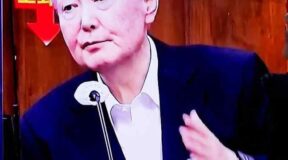Moments after Professor Tijjani Muhammad-Bande, Nigeria’s permanent ambassador to the United Nations emerged as the 74th President of U N General Assembly, Antonio Guterres, a Portuguese politician and diplomat who is serving as the ninth Secretary-General of the global body, has cried out that very soon, the organization would run out of cash, owing to outrageous expenditure on operational duties.
He has therefore called on member states to support the organisation and address its deteriorating financial situation.
“Despite numerous efforts to contain expenditures this year, we are likely to run out of cash in August and, therefore borrow from the Working Capital Fund,” said Guterres, in his remarks at a formal meeting of the Fifth Committee.
UN has more assets than liabilities but not enough liquid assets, the UN chief said in a report by Xinhua.
According to Guterres, a major cause of the deteriorating financial health of the organisation in the past few years is the increase in arrears from member states in both the regular and peacekeeping budgets.
The UN chief said the level of arrears at the end of 2018 was $529 million, equivalent to more than 20 percent of the year’s assessments. Five months into this year, arrears are still at $492 million.
However, non- and late payment of contributions are not the only causes of liquidity problems, said Guterres.
According to him, structural weaknesses in the budget methodology create a situation in which the expenditures outpace the approved budget level and the collection of contributions.
“It is caused by the effects of currency exchanges, inflation, salary cost standards and the actual vacancy rates that are approved at the end of one year and assessed only in the next, and unfortunately not always fully compensated, as we had last year,” he added.
Similarly, additional mandates, which are approved by the General Assembly and the Security Council after the approval of the budget, are assessed only at the beginning of the following year, said the UN chief.
The lag between expenditure and assessment has created a gap almost half the size of the Working Capital Fund.
Therefore, even if all member states pay on time and in full, the United Nations will still face cash problems toward the end of the year, said Guterres.
“The solution lies not only in ensuring that all Member States pay in full and on time, but also in putting certain tools in place,” Guterres said.
For the regular budget, he is proposing measures that would, on the one hand, strengthen liquidity-bridging mechanisms and, on the other, manage expenditure levels in a manner that would support program delivery.
Bande’s appointment was announced by María Fernanda Espinosa Garcés, outgoing president of UNGA at a press conference in Abuja after a meeting with President Muhammadu Buhari on Tuesday.
Bande becomes the second Nigerian to be appointed President of UNGA after Mr. Joseph Nanven Garba who held the position between 1989 and 1990.
Bande, until his appointment, was the permanent representative of Nigeria to UN.
Born at Zagga in present day Kebbi State, Bande holds M.A in Political Science from the Boston University, Boston, Massachusetts, USA in 1981 and a PhD in Political Science from the University of Toronto, Canada in 1987.
He was, from January 2000 to February 2004, the Director-General of the Centre African de Formation et de Recherche Administrative pour le Development (CAFRAD) in Tangier, Morocco. This is Africa’s premier institution with responsibility for training and research in public administration and management.
He was the Vice-Chancellor Usman Danfodiyo University, Sokoto, between 2004 and 2009 and served as former Director-General of the National Institute of Policy and Strategic Studies, Kuru, Plateau State from 2010 till March 2016.







